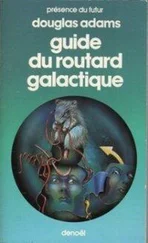Douglas Adams - The Salmon of Doubt
Здесь есть возможность читать онлайн «Douglas Adams - The Salmon of Doubt» весь текст электронной книги совершенно бесплатно (целиком полную версию без сокращений). В некоторых случаях можно слушать аудио, скачать через торрент в формате fb2 и присутствует краткое содержание. Жанр: Фантастика и фэнтези, на английском языке. Описание произведения, (предисловие) а так же отзывы посетителей доступны на портале библиотеки ЛибКат.
- Название:The Salmon of Doubt
- Автор:
- Жанр:
- Год:неизвестен
- ISBN:нет данных
- Рейтинг книги:4 / 5. Голосов: 1
-
Избранное:Добавить в избранное
- Отзывы:
-
Ваша оценка:
- 80
- 1
- 2
- 3
- 4
- 5
The Salmon of Doubt: краткое содержание, описание и аннотация
Предлагаем к чтению аннотацию, описание, краткое содержание или предисловие (зависит от того, что написал сам автор книги «The Salmon of Doubt»). Если вы не нашли необходимую информацию о книге — напишите в комментариях, мы постараемся отыскать её.
The Salmon of Doubt — читать онлайн бесплатно полную книгу (весь текст) целиком
Ниже представлен текст книги, разбитый по страницам. Система сохранения места последней прочитанной страницы, позволяет с удобством читать онлайн бесплатно книгу «The Salmon of Doubt», без необходимости каждый раз заново искать на чём Вы остановились. Поставьте закладку, и сможете в любой момент перейти на страницу, на которой закончили чтение.
Интервал:
Закладка:
They would have to make them specially. That would take six weeks. Six weeks. Six minus two was, as we had been so carefully and painstakingly taught, four. Which meant that for four whole weeks of the next term I was going to be the only boy in school wearing shorts. For the next two weeks I took up playing in the traffic, being careless with kitchen knives, and neglecting to stand clear of the doors on station platforms, but, sadly, I led a charmed life, and I had to go through with it: four weeks of the greatest humiliation and embarrassment known to man or, rather, to that most easily humiliated and embarrassed of all creatures, the overgrown twelve-year-old boy. We’ve all experienced those painful dreams in which we suddenly discover we are stark naked in the middle of the high street. Believe me, this was worse, and it wasn’t a dream.
The story rather fizzles out there because a month later, of course, I got my long trousers and was readmitted into polite society. But, believe me, I still carry the scars inside, and though I try my best to bestride the world like a Colossus, writing best-selling books and ... (well, that’s about it, really, I suppose), if I ever come across as a maladjusted, socially isolated, sad, hunched emotional cripple (I’m thinking mainly of Sunday mornings in February, here), then it’s those four weeks of having to wear short trousers in September 1964 that are to blame.
“Why” is the only question that bothers people enough to have an entire letter of the alphabet named after it.
The alphabet does not go “A B C D What? When? How?” but it does go “V W X Why?
“Why?” is always the most difficult question to answer. You know where you are when someone asks you “What’s the time?” or “When was the battle of 1066?” or “How do these seatbelts work that go tight when you slam the brakes on, Daddy?” The answers are easy and are, respectively,
“Seven-thirty-five in the evening,” “Ten-fifteen in the morning,” and “Don’t ask stupid questions.” But when you hear the word “Why?,” you know you’ve got one of the biggest unanswerables on your hands, such as “Why are we born?” or “Why do we die?” and “Why do we spend so much of the intervening time receiving junk mail?”
Or this one:
“Will you go to bed with me?”
“Why?”
There’s only ever been one good answer to that question “Why?” and perhaps we should have that in the alphabet as well. There’s room for it. “Why?” doesn’t have to be the last word, it isn’t even the last letter. How would it be if the alphabet ended not, “V W X Why? Z,” but “V W X Why not?” Don’t ask stupid questions.
From Hockney’s Alphabet
(Faber & Faber)
The Meaning of Liff* started life as an English exercise I had to do at school, which then got turned into a game fifteen
*The Meaning of Liff and its successor, The Deeper Meaning of Liff, are books coauthored by Douglas Adams and John Lloyd. years later by John Lloyd and myself. We were sitting with a few friends in a Greek taverna playing charades and drinking retsina all afternoon until we needed to find a game that didn’t require so much standing up. It was simply this (it needed to be simple; the afternoon was too far advanced for complicated rules): someone would say the name of a town and somebody else would say what the word meant. You had to be there.
We rapidly discovered that there were an awful lot of experiences, ideas, and situations that everybody knew and recognized, but that never got properly identified simply because there wasn’t a word for them. They were all of the “Do you ever have the situation where ... ,” or “You know what feeling you get when ... ,” or “You know, I always thought it was just me ...” kind. All it needs is a word, and the thing is identified.
So, the vaguely uncomfortable feeling you got from sitting on a seat which is warm from somebody else’s bottom is just as real a feeling as the one you get when a rogue giant elephant charges out of the bush at you, but hitherto only the latter has actually had a word for it. Now they both have words. The first one is “shoeburyness,” and the second, of course, is “fear.” We started to collect more and more of these words and concepts, and began to realize what an arbitrarily selective work the Oxford English Dictionary is. It simply doesn’t recognize huge wodges of human experience. Like, for instance, standing in the kitchen wondering what you went in there for. Everybody does it, but because there isn’t—or wasn’t—a word for it, everyone thinks it’s something that only they do and that they are therefore more stupid than other people. It is reassuring to realize that everybody is as stupid as you are and that all we are doing when we are standing in the kitchen wondering what we came in here for is “woking.”
They first saw the light of day when John Lloyd was putting together the Not 1982 calendar, and was stuck for things to put on the bottoms of the pages (and also the tops and quite a few middles). He turned out the drawer, chose a dozen or so of the best new words, and inserted them in the book under the name Oxtail English Dictionary. This quickly turned out to be one of the most popular bits of Not 1982, and the success of the idea in this small scale suggested the possibility of a book devoted to it—and here it is: The Meaning of Liff, the product of a hard lifetime’s work studying and chronicling the behaviour of man.
From Pan Promotion News 54, OCTOBER 1983
My Nose My mother has a long nose and my father had a wide one, and I got both of them combined. It’s large.
The only person I ever knew with a nose substantially larger than mine was a master at my prep school who also had tiny little eyes and hardly any chin and was ludicrously thin. He resembled a cross between a flamingo and an old-fashioned farming implement and walked rather unsteadily in crosswinds. He also hid a great deal.
I wanted to hide, too. As a boy, I was teased unmercifully about my nose for years until one day I happened to catch sight of my profile in a pair of angled mirrors and had to admit that it was actually pretty funny. From that moment, people stopped teasing me about my nose and instead started to tease me unmercifully about the fact that I said words like “actually,” which is something that has never let up to this day.
One of the more curious features of my nose is that it doesn’t admit any air. This is hard to understand or even believe. The problem goes back a very long way to when I was a small boy living in my grandmother’s house. My grandmother was the local representative of the RSPCA, which meant the house was always full of badly damaged dogs and cats, and even the occasional badger, stoat, or pigeon.
Some of them were damaged physically, some psychologically, but the effect they had on me was to seriously damage my attention span. Because the air was thick with animal hair and dust, my nose was continually inflamed and runny, and every fifteen seconds I would sneeze. Any thought I could not explore, develop, and bring to some logical conclusion within fifteen seconds would therefore be forcibly expelled from my head, along with a great deal of mucus. There are those who say that I tend to think and write in one-liners, and if there is any truth to this criticism, then it was almost certainly while I lived with my grandmother that the habit developed.
I escaped from my grandmother’s house by going to boarding school, where, for the first time in my life, I was able to breathe. This new-found blissful freedom continued for a good two weeks, until I had to learn to play rugby. In about the first five minutes of the first match I ever played, I managed to break my nose on my own knee, which, although it was clearly an extraordinary achievement, had the same effect on me that those geological upheavals had on whole civilizations in Rider Haggard novels—it effectively sealed me off from the outside world forever.
Читать дальшеИнтервал:
Закладка:
Похожие книги на «The Salmon of Doubt»
Представляем Вашему вниманию похожие книги на «The Salmon of Doubt» списком для выбора. Мы отобрали схожую по названию и смыслу литературу в надежде предоставить читателям больше вариантов отыскать новые, интересные, ещё непрочитанные произведения.
Обсуждение, отзывы о книге «The Salmon of Doubt» и просто собственные мнения читателей. Оставьте ваши комментарии, напишите, что Вы думаете о произведении, его смысле или главных героях. Укажите что конкретно понравилось, а что нет, и почему Вы так считаете.







